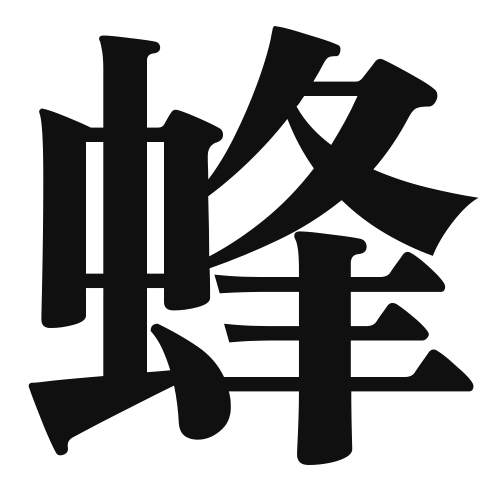1. Overview of Meaning
The kanji “蜂” (hachi) means “bee” in English. It refers to the flying insect known for its role in pollination and honey production.
2. Formation and Radicals
The kanji “蜂” is a phonetic-ideographic character (形声文字) that combines the radical for “insect” (虫) with a phonetic component that suggests its pronunciation. The radical虫 indicates that it is related to insects.
3. Examples of Usage
Common words and phrases that include “蜂” are:
- 蜂蜜 (はちみつ, hachimitsu) – honey
- 蜂の巣 (はちのす, hachinosu) – beehive
Example sentence in daily conversation:
「私は蜂蜜が大好きです。」(Watashi wa hachimitsu ga daisuki desu.) – “I love honey.”
4. Synonyms and Antonyms
Similar kanji with related meanings include:
- 蟻 (あり, ari) – ant, which is also an insect but differs in species and behavior.
Antonyms or contrasting kanji include:
- 獣 (けもの, kemono) – beast, referring to larger animals that are not insects.
5. Cultural and Historical Background
In Japanese culture, bees are often associated with hard work and community, as they work together to produce honey. There are also proverbs and idiomatic expressions that reference bees, such as:
- 「蜂のように働く」(Hachi no you ni hataraku) – “to work like a bee,” meaning to work diligently.
Bees also play a role in traditional Japanese art and literature, symbolizing nature’s beauty and the importance of harmony in the ecosystem.
